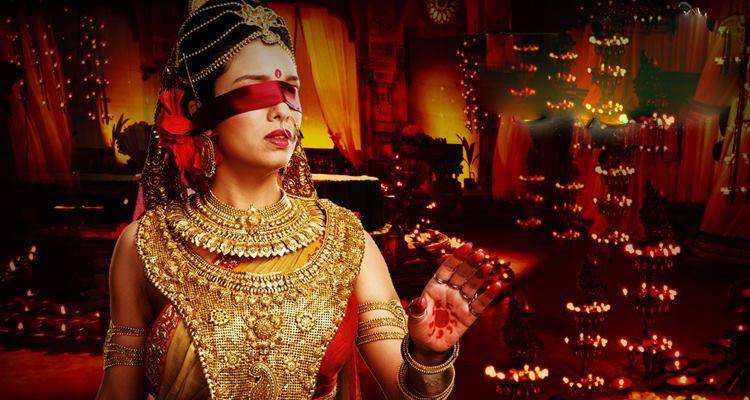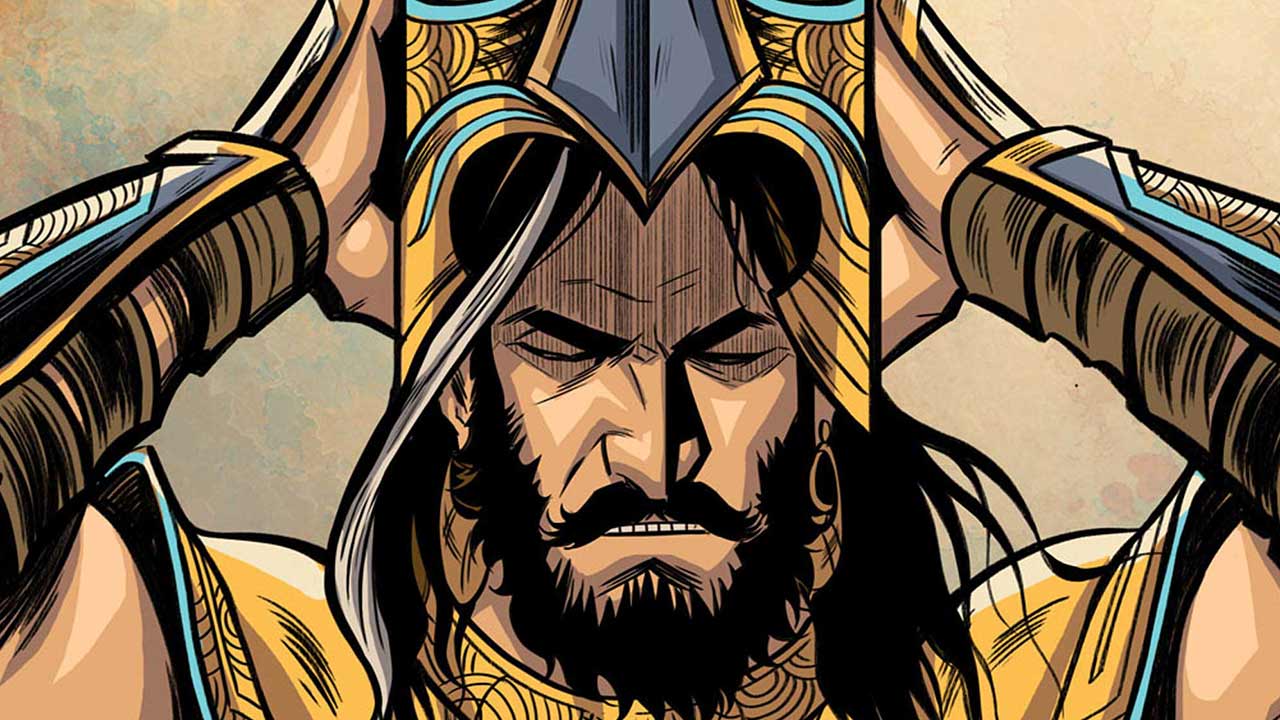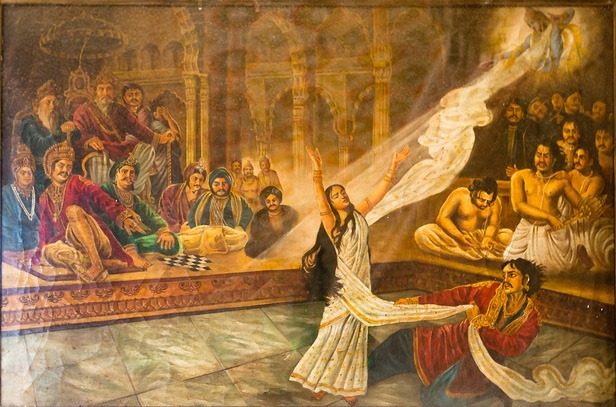10 Facts About The Epic Mahabharata

One of the greatest epics in the world, The Mahabharata is a layered text that manages to rise well above the confines of a religious text or make believe mythology. The Mahabharata provides great insight into the political complications, concepts about justice and the ever pervading Karmic Cycle. Tarun Tejpal once opined that the Mahabharata successfully illustrates the “As you sow, so shall you reap” philosophy that governs the universe.
Centuries after it was apparently written, this epic continues to be rediscovered in more than one aspect by scholars throughout the world. In its folds are hidden a treasure of pearls of wisdom that becomes difficult to comprehend all at once. The Mahabharata is in fact quite adept at hiding secrets within its verses.
1. Mahabharata And Jaya
The original text composed by sage Veda Vyasa was known as Jaya. It was later expanded by two of his disciples. Ugrasrava’s work has come to be known as the Mahabharata as we know it today. The fact that Lord Ganesh had served as the scribe for Veda Vyasa’s dictation is known to everybody. It is believed that only someone as deeply conversant with the Sanskrit language as Ganesh himself would have been able to decipher Veda Vyasa’s difficult dictations. It is in fact believed that a large part of the original Mahabharata has never been deciphered.
2. Shishupala Vadha

The King of Chedis, Shishupala had a permanent throne on Lord Krishna’s side. It was believed that Shishupala, in fact was a reincarnation of the evil Hiranyakashipu himself whom Krishna had already slayed. Shishupala attacked Krishna when he was eloping with Rukmini, his betrothed. They say that Krishna forgave Shishupala a whopping 100 times before he ultimately killed him in the Rajasuya Yajna conducted by Yudhishthira.
3. The Great Lie Of Yudhishthira

Now, we all know that Yudhishthira was the most honest man who ever walked the earth, a reincarnate of ‘Dharma’ himself. In fact Yudhishthira was so honest that the wheels of his chariot never touched the earth. So when he uttered the first lie of his life in the battle of Kurukshetra, his chariot fell down to earth with a resounding thud. Dronacharya, the Guru of both the Pandavas and Kauravas was a fearless warrior. He had a son named Ashwathama. Drona was proving to be invincible in Kurukshetra and was slaying enemy soldiers. And in an opportune moment an elephant also named Ashwathama fell dead. Instigated by his compatriots, the Dharmaraj uttered “Ashwathama hata iti gaja”. (Loosely translated it would mean “ Ashwathama was killed, P.S.- it was the elephant). Now Drona was grief-stricken and lost all drive to battle. He was promptly killed off.
4. The Great Curse Of Arjuna

Once Arjuna went to heaven and fell prey to the advances of the stunning Apsara Urvashi. Arjuna dutifully spurned her advances. But this enraged Urvashi to such an extent that she cursed him. He was to become effeminate for one year of his life. What did Arjuna do? Well, he used the curse as a boon.
During the last year of the Pandava’s exile, they were supposed to live incognito. Arjuna promptly took form of the eunuch Brihannala and found pride place in the court of a Gupta King.
5. Aravan And Mohini

Aravan was the son of Arjuna with Uloopi. In order to ensure a Pandava victory in the battle of Kurukshetra he decided to sacrifice himself to Goddess Kali. He had a last wish, however. He wanted to get married to a girl before he died. Which woman would so readily embrace widowhood? Enter Lord Krishna. He transformed into the nubile Mohini and got married to the valiant Aravan. After his death, she cried like a real wife.
6. What's In A Name?

The names of the Kauravas have all been supposedly corrupted due to their bad reputation. Take for instance Duryodhana (literally meaning, the Evil Warrior). He was originally named Suyodhana (or the Valiant Warrior). Dushshashana (the Evil Administrator) was originally Shushashana (the Benevolent Ruler) and Dushshala (one who moves badly) was Shuchala (the epitome of graceful movement).
7. The Lone Brother

Vibhishana (Ravana’s brother in the epic Ramayana) was not the only character in Indian Mythology to have betrayed his brother in a battle. Yuyutsu was the only one of the 100 Kaurava brothers to have survived the eighteen nights of the battle of Kurukshetra. And guess what? Yuyutsu fought on the Pandava side.
8. The Original Inception
We all know that it was Sage Veda Vyasa who composed the original verses of Mahabharata. But do you know that it was in fact Veda Vyasa himself who fathered Pandu, Dhritarashtra and Vidura? Do you know the fact that the protagonists of Mahabharata were basically descendants of the author of the very epic? That is Veda Vyasa managed to visualize the history of his own sons and grandsons and the intricate political turmoils of the future kingdom of Hastinapura, while seated in a cave far away? The cave where Mahabharata was purportedly composed is supposedly located in Uttarakhand. It is called the ‘Ganesh Guha’ and can be seen even today.
9. The Great Astrologer

Before Pandu died, he had expressed the peculiar wish that his sons should eat his flesh. This act, according to Pandu would make sure that all the knowledge that he had acquired in his lifetime would be transferred to his sons. It was only Sahadev who had managed to eat a morsel of his father’s flesh before being stopped by the Gods. In this way he had acquired the gift of being able to see the future. Sahadev foresaw a great war in the future. However he could not warn his brothers as he was under the effect of a curse that stated if he were ever to share what he foresaw, death would strike him and his loved ones.
10. The Woman Who Started It All

They say that behind every Great War lies the orchestrations of a woman. The Battle of Troy was fought over Helen of Sparta. Indian mythology is also not to be left behind. The Mahabharata says that once Duryodhana came visiting the palace of the Pandavas in Indraprastha. He was awestruck by the palace of illusions. He mistook a pool for a floor and fell into it. Draupadi found this to be extremely amusing and commented. “A blind man’s son will also be blind”. Insulted, Duryodhana swore vengeance against the Pandavas and the rest as they say is history!
Comments
Post a Comment